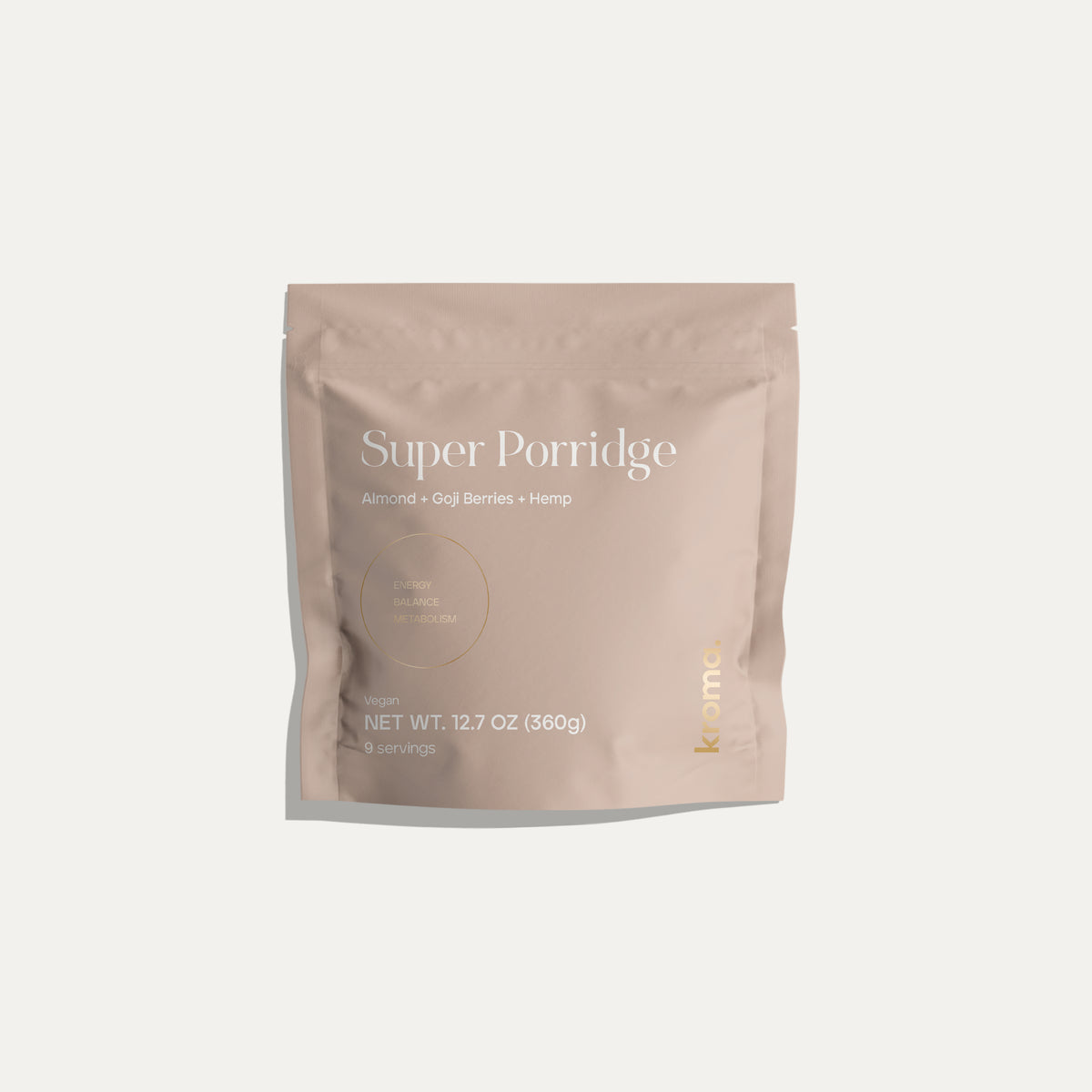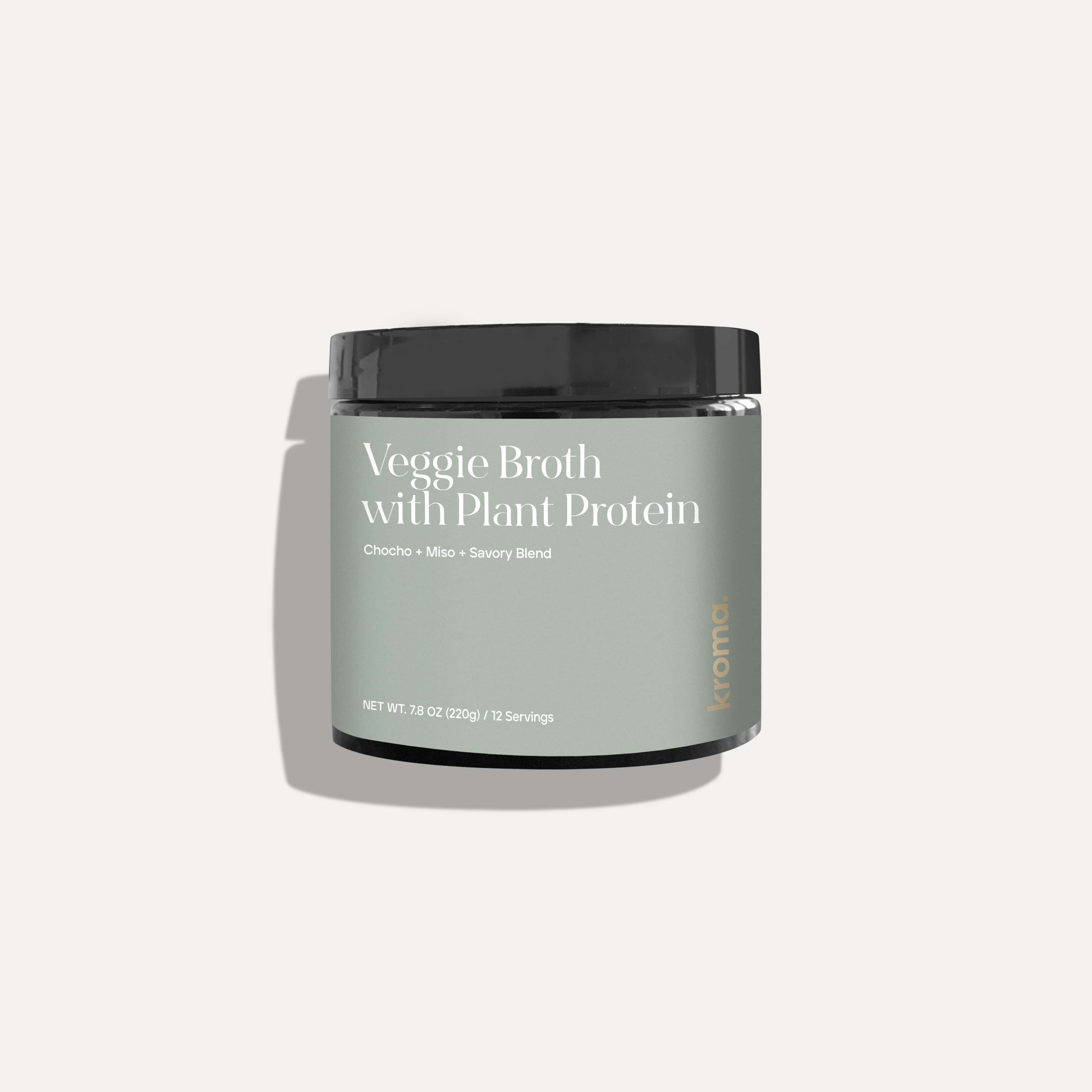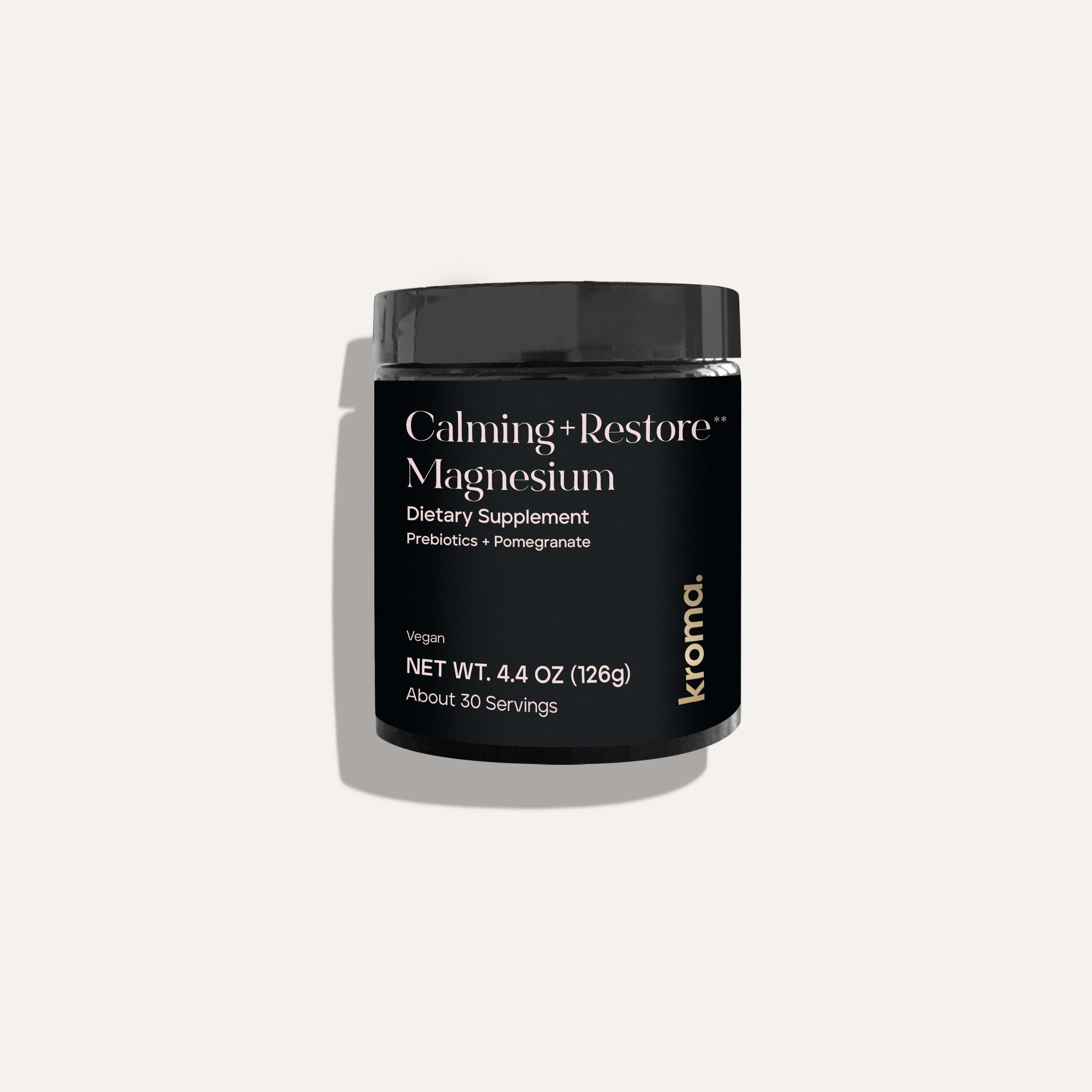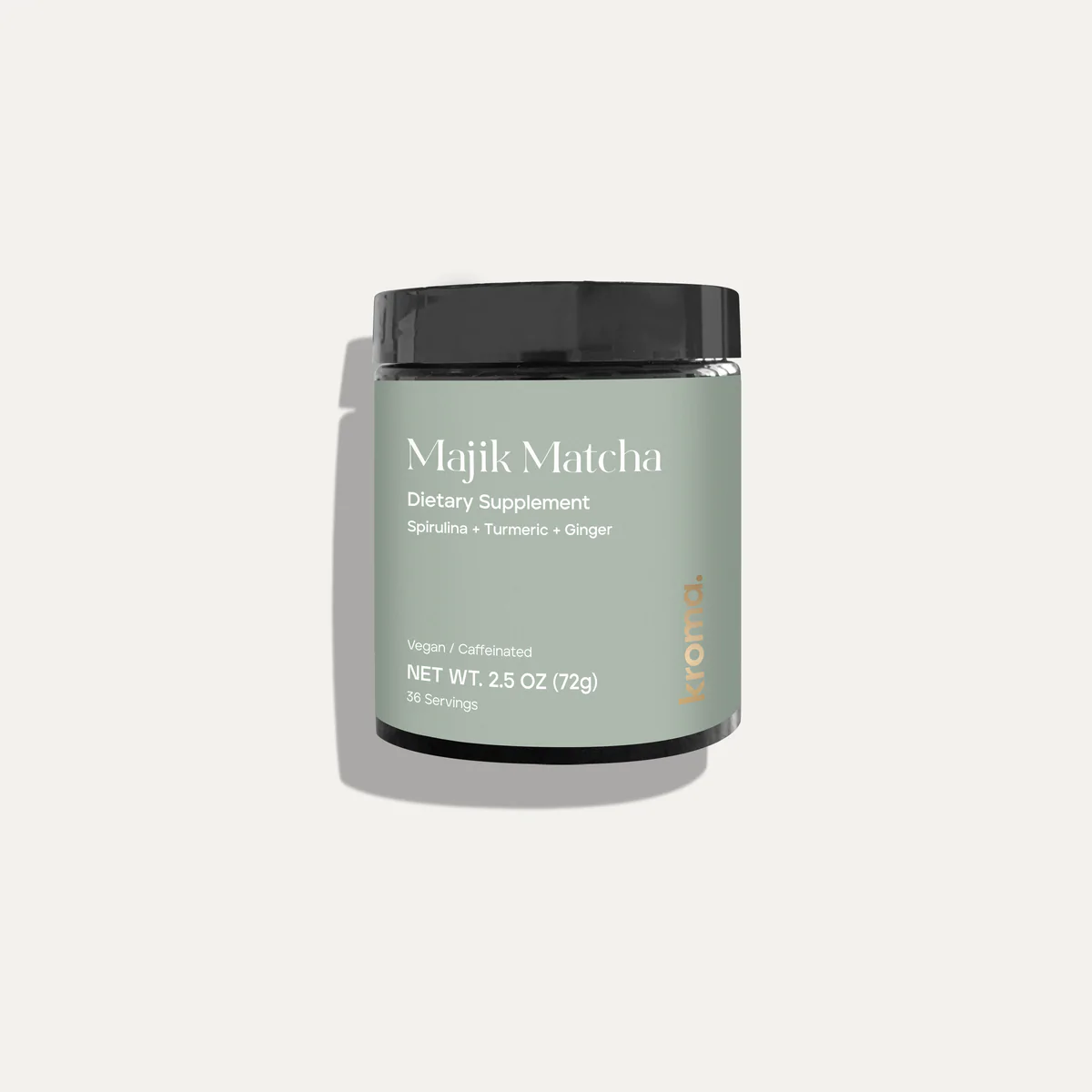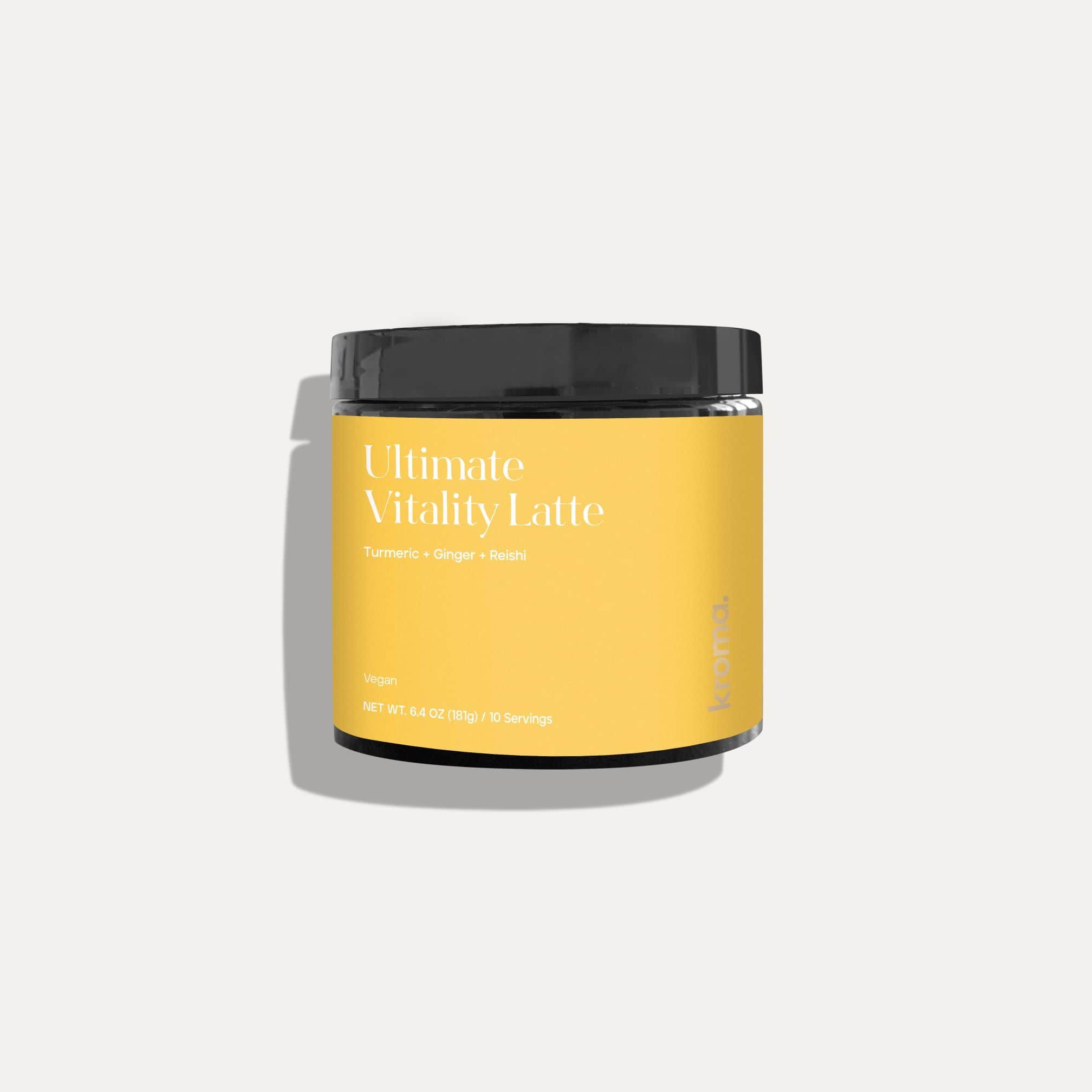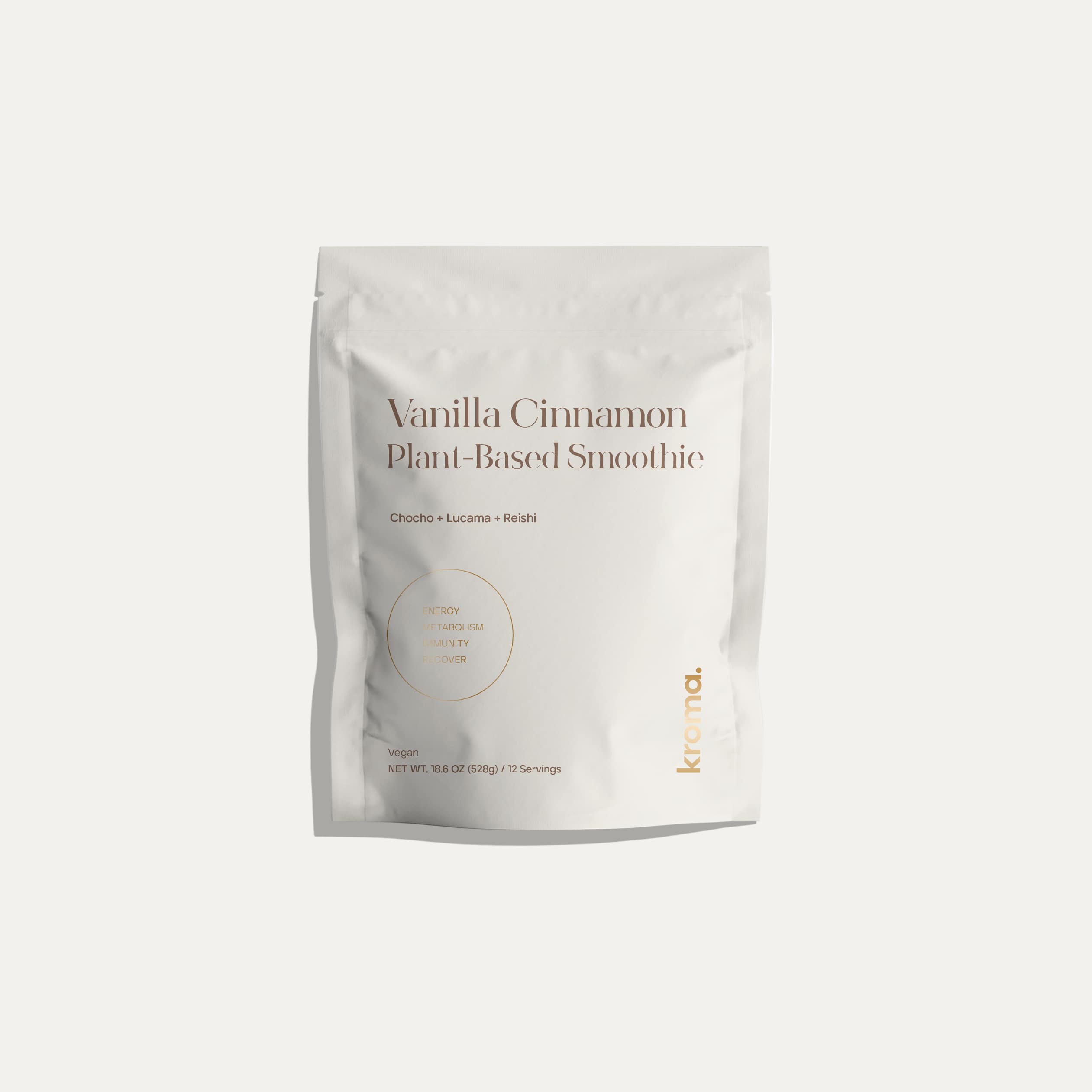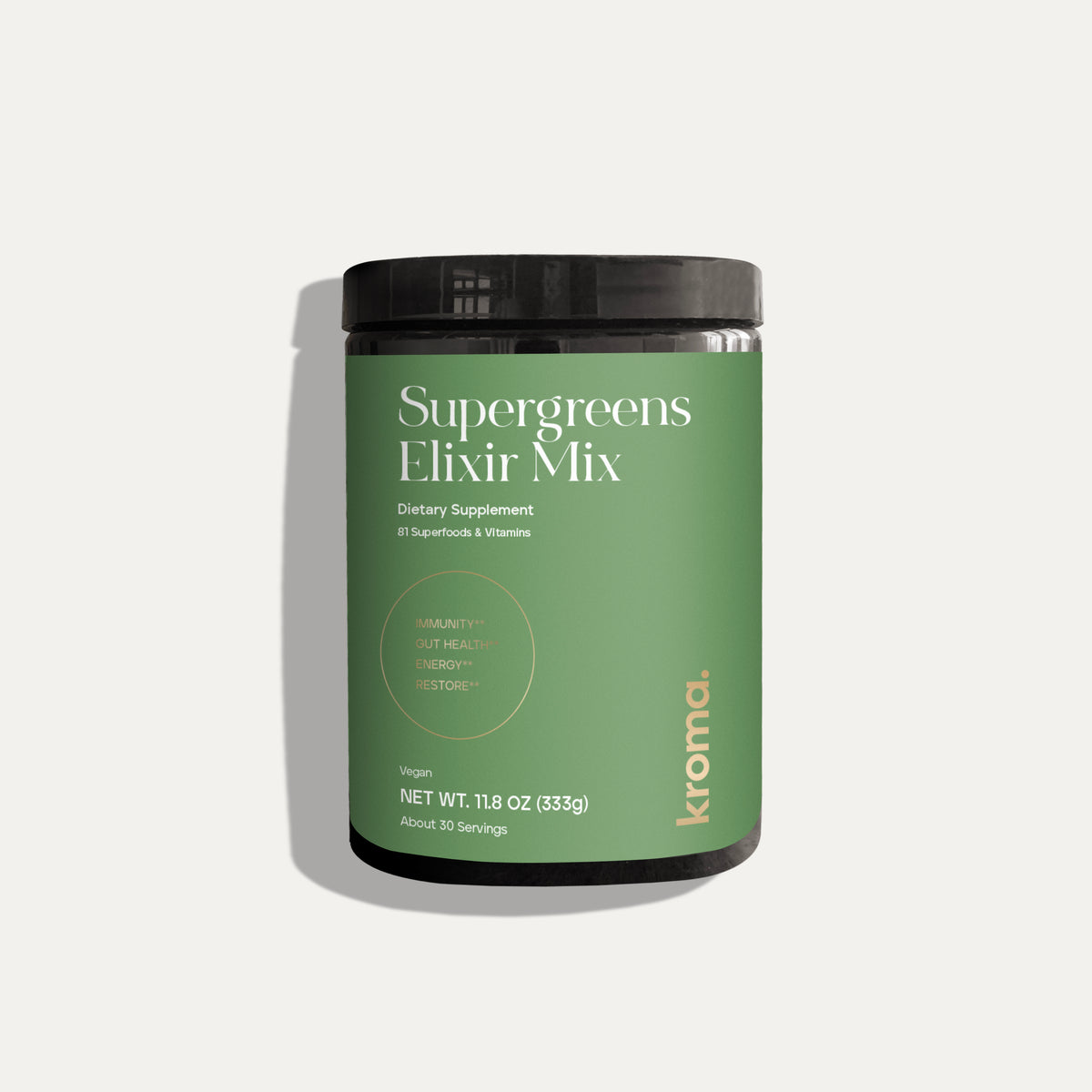How To Improve Digestion
10 Tips
Are you struggling with uncomfortable digestion symptoms like bloating, gas, cramping, or constipation? If you are, your digestion system may not be operating at its full potential. If your digestion is in need of a little TLC, there are many things you can do naturally to help heal your digestive system.
Many diet and lifestyle changes may help you boost your digestion and have you feeling free of embarrassing and annoying symptoms. Here are some tried and true ways you may be able to improve your digestion and foods that benefit your digestion.
How Can I Improve My Digestion Naturally?
Digestion is an important process in the body. It breaks down the foods you eat and absorbs the nutrients. These nutrients provide you with everything your body needs for energy, growth, and cell repair.
When digestion is working well, it generally looks like regular bowel movements with no uncomfortable symptoms of gas and bloating. If your digestion needs a bit of improvement, you may experience gas, bloating, stomach pain, diarrhea, or constipation.
Many factors play into how well your digestion is working, from the things you eat to your lifestyle choices. Here are some simple changes that may help to get your digestion working more efficiently. You may see noticeable changes in how well you feel.
1. Focus on Whole Foods
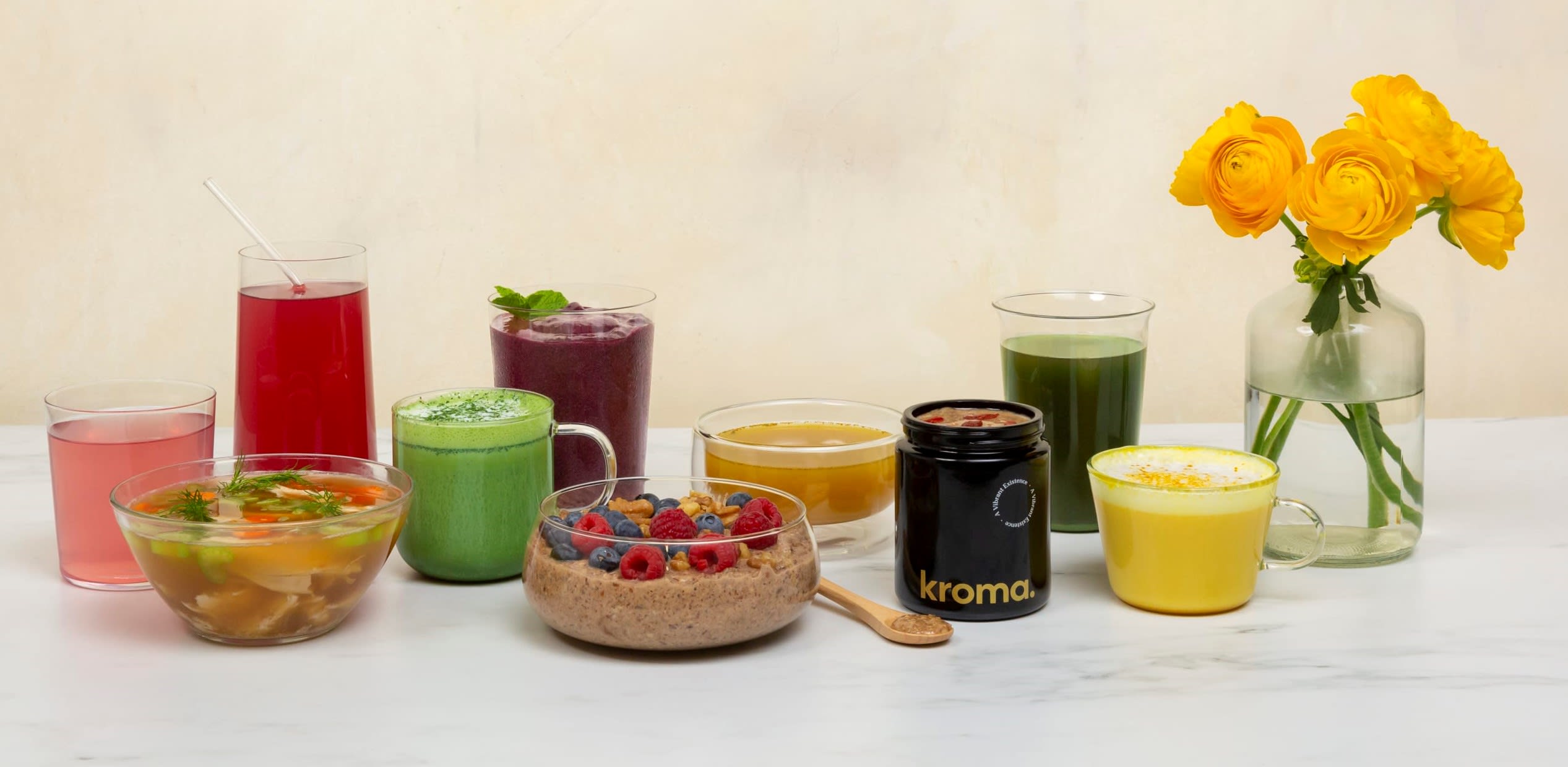
The first step you can take to improve your digestion naturally is to focus on whole foods.
Whole foods have not been processed or refined. By eating as close to whole food as you can, you maintain the nutrients within those foods. Fresh fruit, veggies, nuts, grains, and fresh meat can all be classified as whole foods.
If you need a bit of a diet makeover, you may need to look into a nutritional cleanse. Of course, like a traditional cleanse, there are certain foods you would avoid — processed food — but a nutritional cleanse takes it one step further.
A nutritional cleanse is different from a traditional cleanse, as it focuses on what to add to your diet to benefit your body instead of only eliminating foods.
2. Drink More Water

Water is important for most bodily functions, and digestion is no different. Water helps your gut break down foods and absorb the nutrients from the food you eat. Water helps to keep your stool soft to avoid constipation. Constipation may look is usually defined as having less than three bowel movements a day, difficulty passing stools, or having hard, round stools.
There isn’t a perfect number of ounces of water everyone should be drinking daily. It has a lot to do with your activity levels, environment, and needs.
Some people tout drinking eight 8-ounce glasses of water each day, while others say to drink half of your weight in ounces of water. It really comes down to your needs. Pay attention to your thirst cues, and make sure you are drinking when you notice them. Our Perfect Fast Tea is a great way to get more liquid throughout the day and keep your digestion on track.
3. Eat Enough Fiber
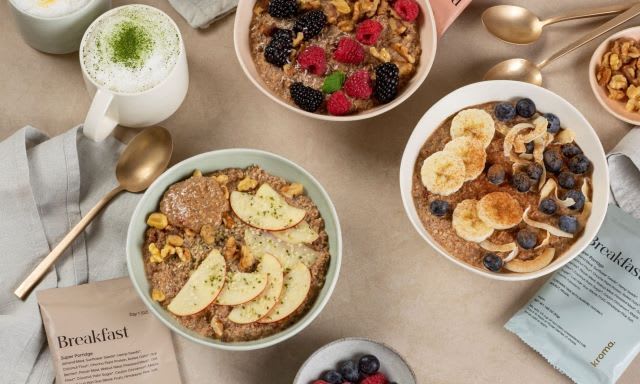
There are two types of fiber — soluble fiber and insoluble fiber.
Soluble fiber dissolves in water and becomes a gel-like consistency. This will slow down digestion and support regular bowel movements. Soluble fiber is also thought to be a prebiotic, meaning it is a food source for healthy gut bacteria. Oat, nuts, seeds, and sweet potatoes are all high in soluble fiber.
Insoluble fiber does not dissolve in water. Insoluble fiber helps with constipation. Foods that may be high in insoluble fiber are cauliflower, nuts, beans, green beans, and potatoes.
Both types of fibers are important in their own way, and most foods high in fiber have both types. Fiber can help you feel full for longer, and it supports weight management, metabolic health, heart health, and overall health. Our Super Porridge is packed with fiber from sources like Rolled Oats, Almond Meal, and Hemp Seeds for a delicious way to maintain your energy and digestive health.
4. Practice Mindful Eating
We hear a lot about mindfulness in life, being aware of the world around you, and focusing on the present moment.
But what does it mean when you practice mindfulness while eating? In our fast-paced world, we are often eating on the go, not paying attention to what we are feeding our bodies, and not listening to our hunger cues.
Mindful eating is a practice where you stay present with all of your senses when consuming food. Mindful eating may benefit digestion by lowering stress levels. Chronic stress levels can directly impact digestion negatively because you are in “fight or flight” — or the sympathetic nervous system.
By practicing mindful eating, you may help your body maintain the parasympathetic nervous system — or “rest and digest” — allowing your body to save its energy to digest efficiently.

5. Chew Slower

You may not think about chewing being a part of your digestive system, but your digestive tract actually starts at the mouth. Tasting, chewing, and swallowing your food are the first steps of digestion. Chewing begins to break down the food you eat, and it is mixed with saliva. Saliva is a digestive liquid that moistens food so it can travel down your esophagus.
When you chew more slowly, you allow more time for your mouth to begin the digestive process, making it easier for your gut to finish breaking down the food and absorbing it. Along with chewing slowly, try not to overload your mouth with too big of a bite. Taking smaller bites allows your teeth and saliva to get to work.
6. Avoid Late-Night Snacks
While digestion still occurs while you are sleeping, it slows down quite a bit. If you overindulge in a late-night snack, especially processed, fried, or sugary, your body may not digest it as quickly or efficiently.
When you lay down with a full stomach, without gravity keeping things down, stomach acid may rise, causing unpleasant symptoms. You may experience heartburn, indigestion, and acid reflux.
If you need a little snack to get you through the night, reach for a small, nutrient-dense snack like green olives and fasting tea to hold you over. If you must snack, eat enough to satiate the hunger, and then stop until morning.
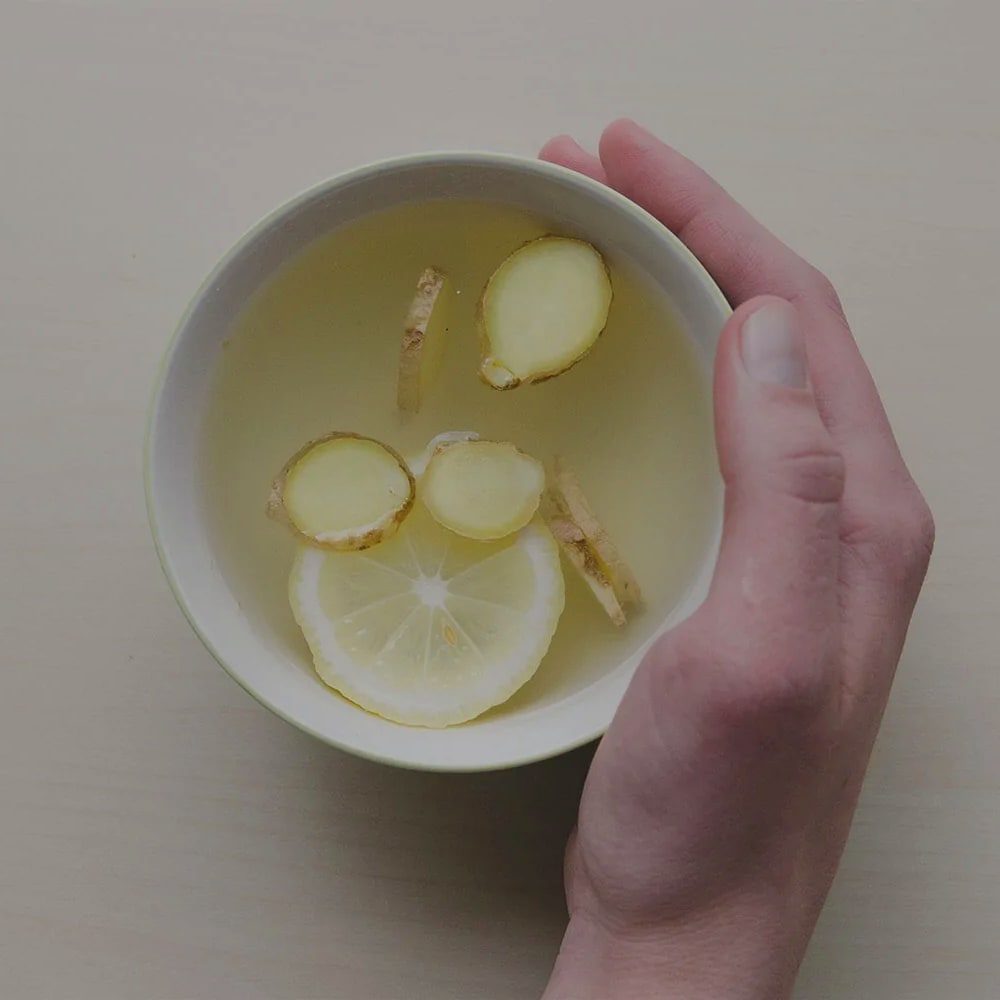
7. Try Probiotics
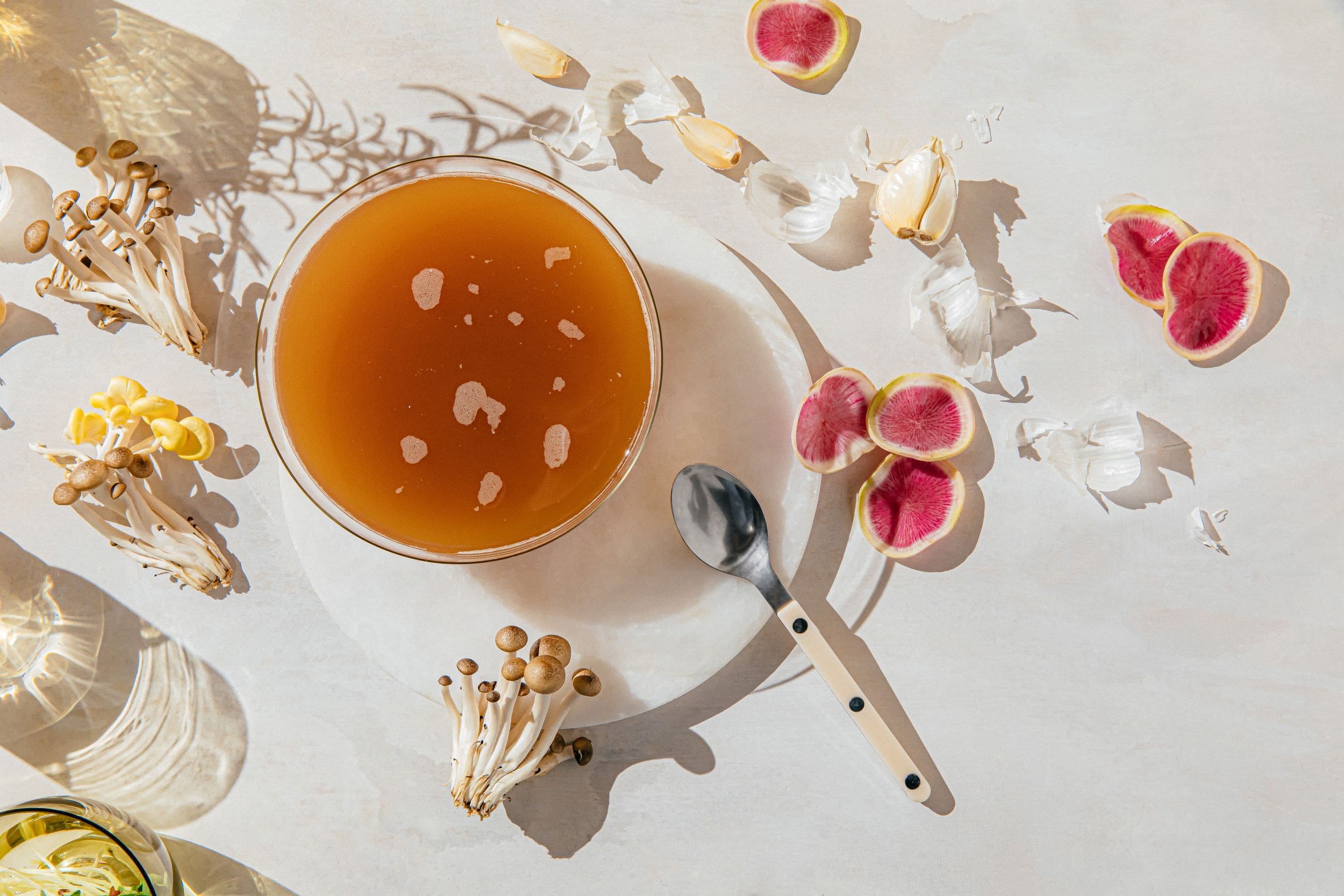
Probiotics are live microorganisms — the most common being bacteria — that, when consumed, help to balance the gut microbiome. Good bacteria allow your gut to break down food and absorb nutrients. They may also control potentially harmful microorganisms in the gut. Probiotics may benefit many gastrointestinal conditions.
While there are supplements that offer probiotics, you can also consume probiotics with the foods you eat. Fermented foods like sauerkraut, kimchi, and tempeh are high in probiotics and taste amazing in Kroma’s Veggie Broth with Plant Protein as an easy way to add flavor and healthy gut biome ingredients to your diet. Pickled veggies, miso, and water kefir are also great options for increasing your probiotics.
8. Get Enough Sleep
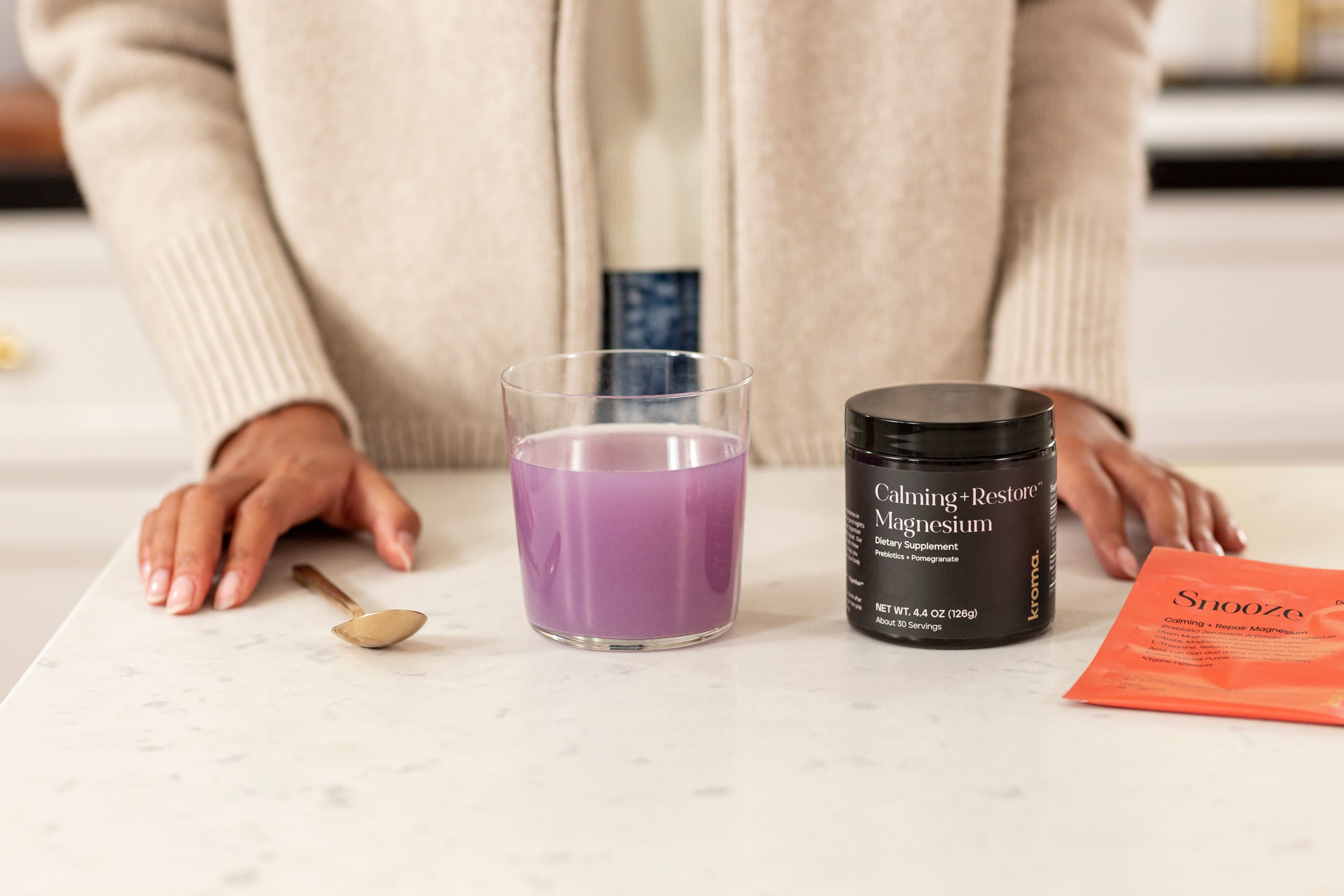
Lack of sleep may also cause an imbalance in the hormone that makes you feel hungry and the hormone that allows you to feel full — ghrelin and leptin, respectively.
When these hormones are out of balance, you may crave sugar more than usual. Sugar will not give you the digestive improvements you are looking for.
A lack of sleep can also cause stress. Stress can cause you to go into the “fight or flight” response, which pulls energy away from processes like digestion to keep you safe. When you are stuck in this response, your digestion severely slows, potentially causing constipation and/or diarrhea.
If you find yourself not sleeping well, even if you haven’t seen noticeable digestive issues, it is best for your overall health, including your digestion, to start making your sleep a priority. Our Calming + Restore Magnesium can help support sleep and ease muscle tension, which in turn can support proper digestion.
9. Move Your Body
Exercise benefits your body in many ways, and digestion is high on the list. Even if it is a simple walk a few times a week, moving your body can help relieve constipation. It can also help to improve your gut transit time — or how fast food travels through the digestive tract.
Exercise may also help you to reduce stress. We have already learned that stress and digestion often go hand in hand. Try adding some movement to your days to help to reduce your overall stress. Yoga, pilates, bicycling, and walking are all ways that may contribute to better digestion and overall health.

10. Eat Fewer Processed Foods
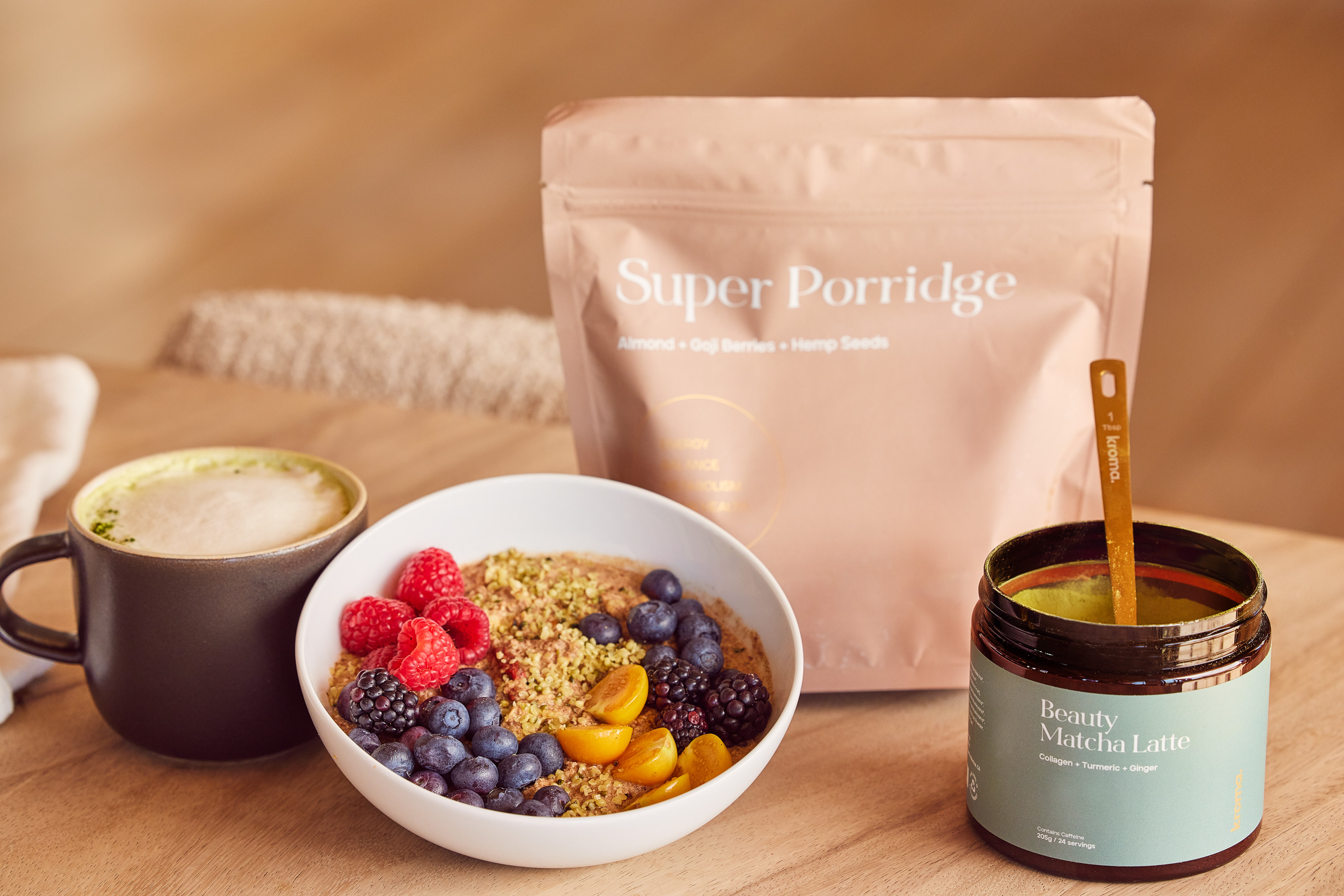
If you are trying to improve your digestive health, one of the best things you can do is reduce or cut out processed foods. Processed foods are generally high in fat, calories, sugar, salt, and additives, while low in nutritional value. These may be prepackaged snacks, cookies, boxed meals, or frozen meals — but Kroma’s pre-packaged foods are minimally processed and full of nutritious superfood ingredients.
A few digestive problems may occur when you eat too many processed foods. The high levels of salts in many packaged-food snacks may cause your digestive system to become dehydrated, negating all the water you have been drinking, and causing constipation.
Which Foods Can Aid Digestion?
Lifestyle changes make a big impact on digestion, but the food you eat can make some of the biggest impacts on your digestion. By providing your body and your digestive system with high-quality, whole foods, you may be giving it the best chance of improvement.
Here are some foods you should consume to benefit healthy digestion.
Ginger

For thousands of years, ginger has been used to treat digestive symptoms. While not every symptom has been researched extensively, nausea has been thought to be improved by ginger.
Ginger comes from ginger root. You can use this fragrant root to make teas, season sweet and savory dishes, or add it to your morning smoothie. We love to add ginger to our products to give them an added layer of flavor with a boost of potential health benefits.
Our Majik Matcha is made with ginger for a delicious way to jumpstart your day and your digestion.
Turmeric
Ayurvedic medicine — an ancient Indian medicine still used today — continues to use turmeric to aid in digestion. Turmeric is in the ginger family and is a bright golden-yellow color. Turmeric is often used in curry to give it its distinct yellow color.
Our Perfect Fast Tea has Ginger and Turmeric to aid with your digestion and appetite management. If you are fasting, this is also a perfect tea to consume without breaking your fast.
Mushrooms
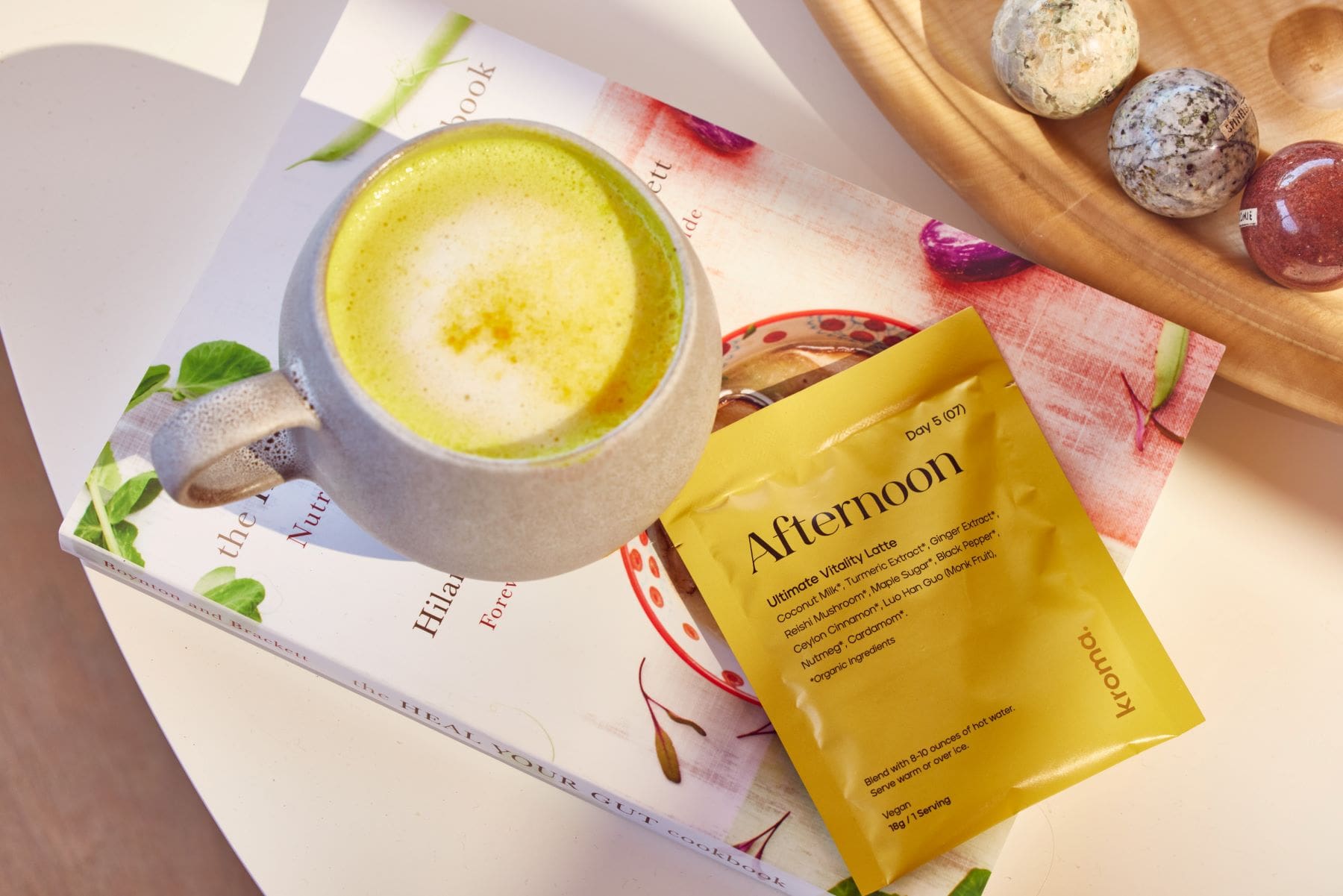
Mushrooms pack a big nutritional punch in a very small package. They are full of protein, vitamins, minerals, fiber, and trace elements and are low in calories. The fiber found in mushrooms is thought to be prebiotic.
One way to incorporate mushrooms into your daily life is with our Ultimate Vitality Latte. This powerful latte is full of amazing superfoods like Reishi mushroom to help support your digestion, immune system, and overall health.
Fiber
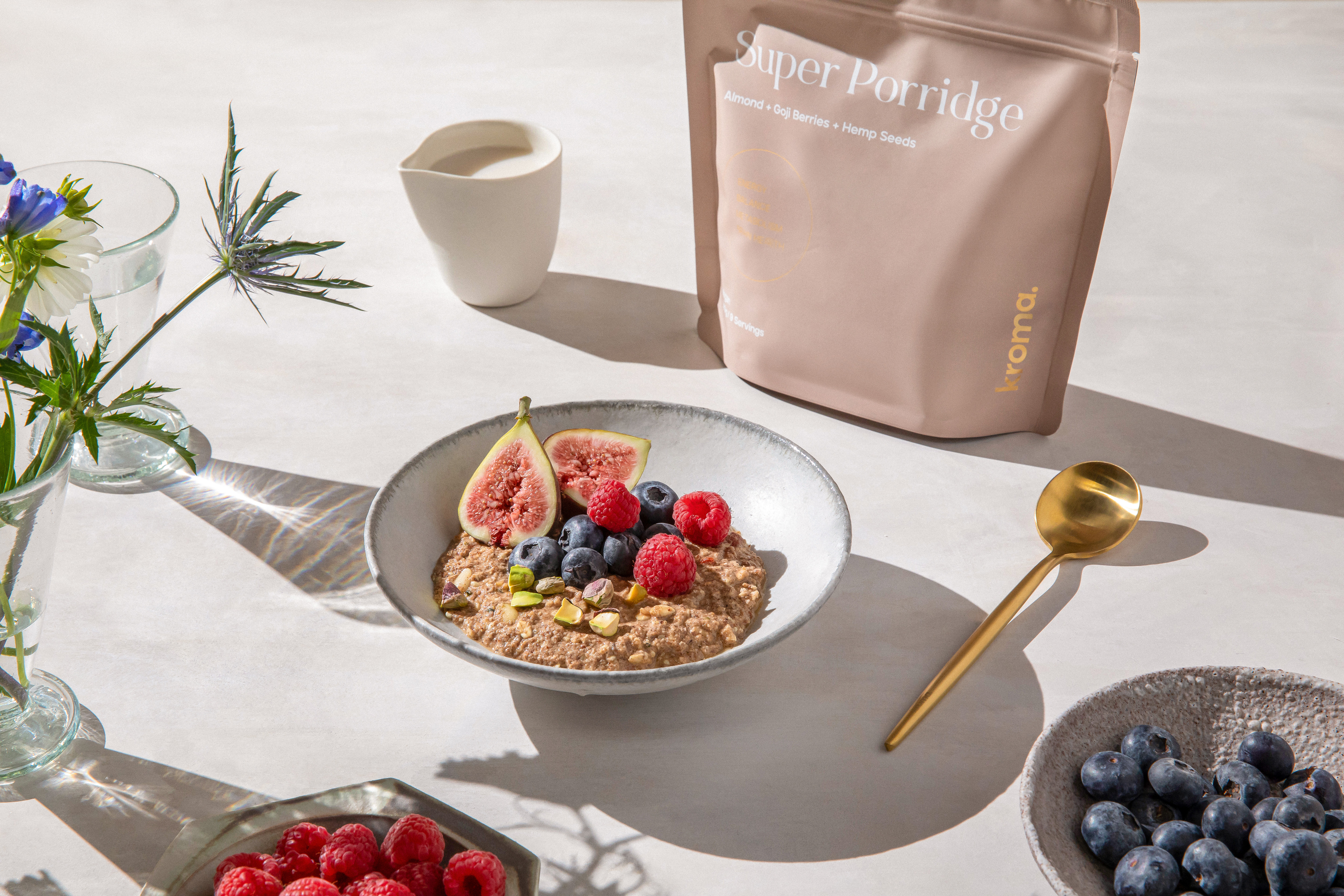
Fiber plays a huge role in digestion. It provides food for healthy bacteria and bulks up your stool while softening it. It also pulls water into your digestive system and slows digestion for better nutrient absorption, and helps you to control hunger throughout the day.
Whole foods like fruits, vegetables, nuts, seeds, and whole grains are generally higher in fiber.
One way to ensure you are starting your day with a healthy dose of fiber is with our Super Porridge. Our porridge is packed with Rolled Oats, Almond Meal, Flaxseed Meal, and Ceylon Cinnamon, providing you with a satisfying and easy way to start your day.
Protein
Almost every cell in the body requires the amino acids in protein to function. Digestion also benefits from consuming protein. Protein begins digestion in the stomach, and it is much slower to digest than carbohydrates. Because it is slower to digest, it allows you to feel fuller longer.
What is interesting about protein is unlike many other foods, it doesn’t often get to the large intestines. Small amounts of protein will be broken down and absorbed in the small intestines before it can continue to travel down.
When picking proteins, look for proteins low in fat, like skinless, white meat poultry, white fish, lean beef, tofu, and beans. We offer a crave-worthy line of smoothies that you can use as a midday snack or an on-the-go breakfast.
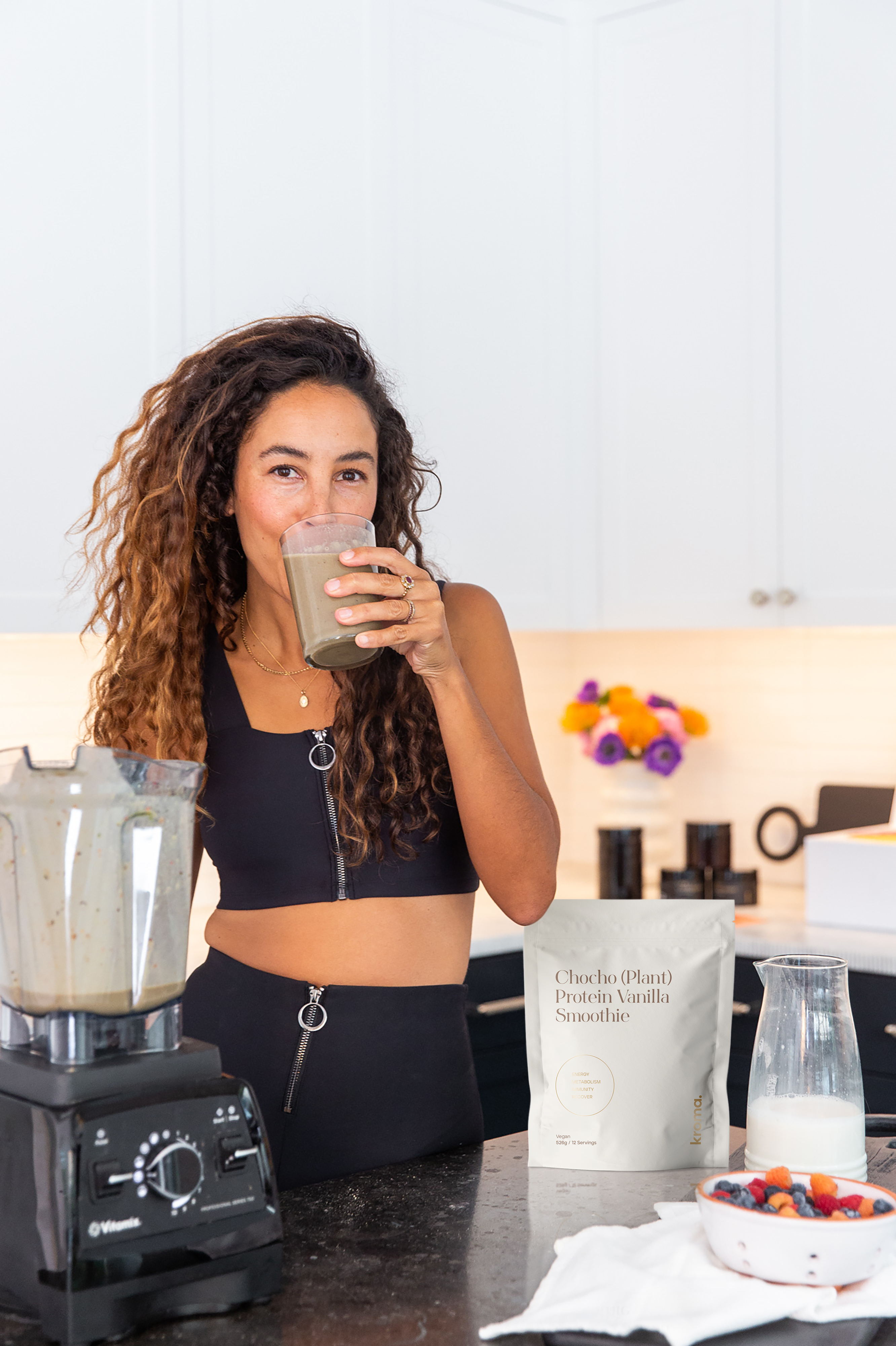
Leafy Greens
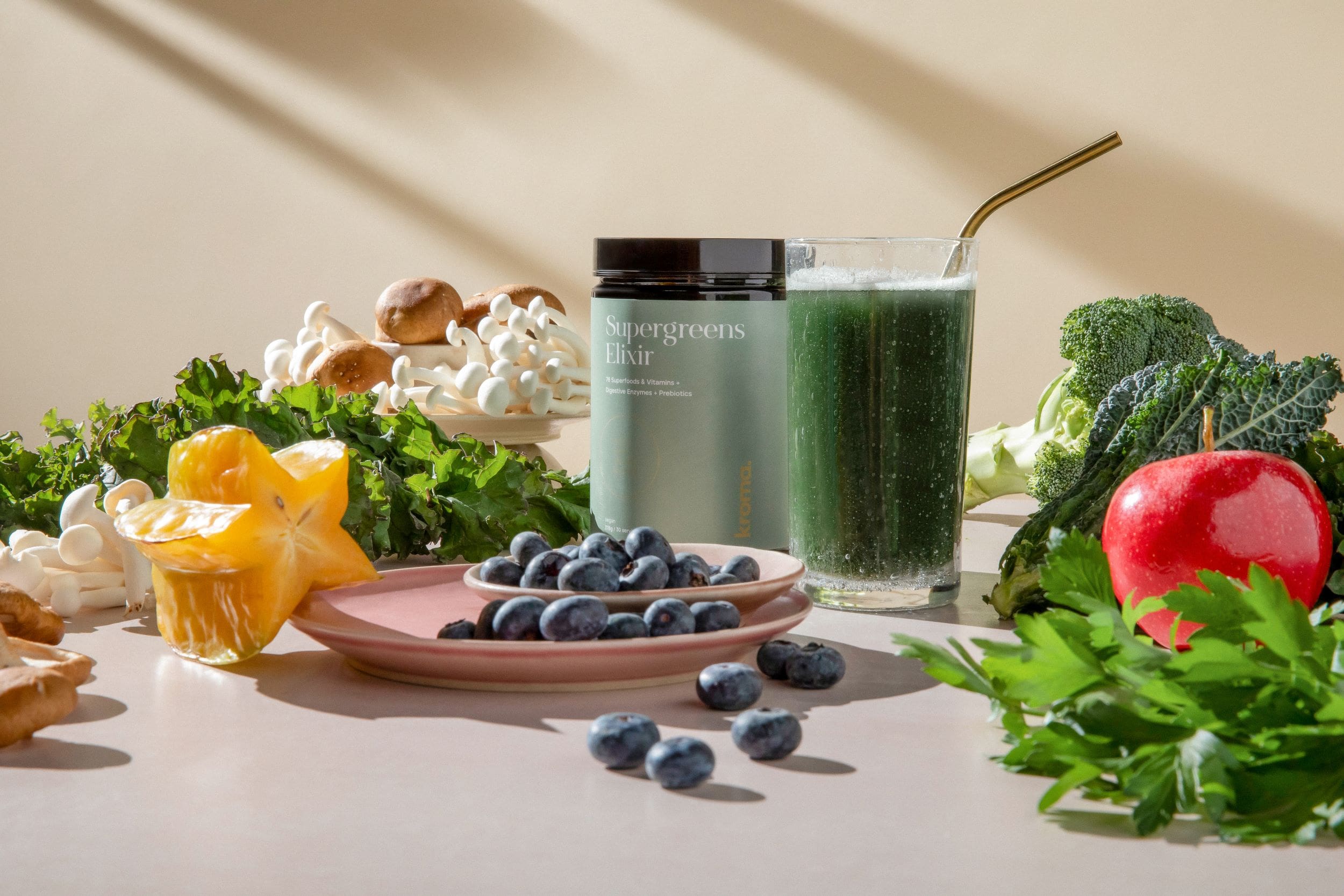
We know a healthy gut microbiome needs prebiotic fibers to feed off of, which leafy greens have. However, leafy greens also have a sugar called sulfoquinovose. This special sugar, or carb, is loved by certain good bacteria in the gut, and it helps to feed them. This has been a relatively new discovery, making yet another reason you should eat your leafy greens.
Spinach, kale, collard greens, bok choy, and turnip greens are all excellent choices to reach for. You can also try our Supergreens Elixir for a jam-packed dose of greens and superfoods to supercharge your digestion.
The Bottom Line
If you are feeling like your digestion is a little sluggish and you're not feeling your best self, there is hope. With our simple tips for improving digestion naturally, you’ll be benefiting from a balanced digestion system.
Trying to make too many changes at once can be overwhelming, so just start with one or two to get you on your way. One of the first things you should do is start switching over to a more whole-food diet.
We can help! Try our 5-Day Diet Cleanse to jump-start your new and improved eating habits.
Water after meals: Does it disturb digestion? | Mayo Clinic
Your Digestive System & How it Works | NIDDK
Sleep and Digestion - How to Improve Your Gut Health | Sleep Advisor
Ginger in gastrointestinal disorders: A systematic review of clinical trials | PMC
A Critical Review on Health Promoting Benefits of Edible Mushrooms through Gut Microbiota | PMC
5.4: Protein Digestion, Absorption and Metabolism | Medicine LibreTexts


